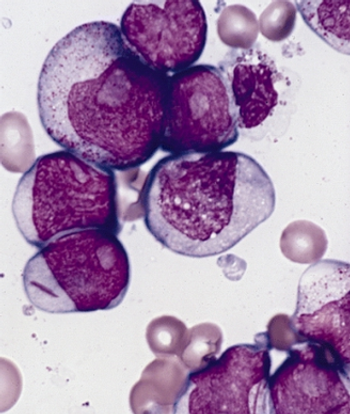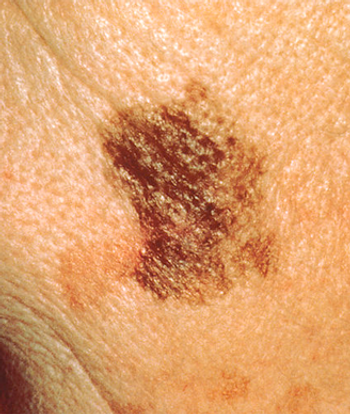
Patients with a prior history of colorectal adenomas saw no reduction in the risk for recurrence with the use of a daily supplement of vitamin D, calcium, or both.

Your AI-Trained Oncology Knowledge Connection!


Patients with a prior history of colorectal adenomas saw no reduction in the risk for recurrence with the use of a daily supplement of vitamin D, calcium, or both.

Follow-up of patients with resected non-metastatic RCC should be based on a combination of risk factors for disease recurrence and risk for non-RCC death.

A new study at a single center in Japan found no significant differences in the rate of BRCA mutations between ovarian cancer patients with or without family histories of the mutations and recommends that BRCA1/2 testing be required for all ovarian cancer patients

Older patients taking the oral TKIs sorafenib and sunitinib for RCC had a significantly increased risk for cardiovascular events, particularly stroke.

A novel regimen of carfilzomib, pomalidomide, and dexamethasone was highly active in a group of heavily pretreated patients with relapsed or refractory multiple myeloma.

Allogeneic HSCT may be the best treatment option in older patients with acute myeloid leukemia who obtain first complete remission after induction chemotherapy.

Patients who are in complete remission from diffuse large B-cell lymphoma may not need to undergo routine imaging follow-up, a new study showed.

The use of bone-seeking radionuclides effectively controlled bone pain in men with prostate cancer metastatic to the bone, according to the results of a systematic review.

Almost 40% of patients undergoing palliative radiotherapy to treat symptomatic bone metastases experienced pain flare, according to an observational study.

Treatment with nab-paclitaxel resulted in significantly improved progression-free survival and a greater disease control rate in chemotherapy-naive patients with metastatic melanoma compared with dacarbazine.

Nonfunctional neuroendocrine tumors of lung or gastrointestinal origin were safely and effectively treated with the mTOR inhibitor everolimus.

A recent study that gave hormone therapy to ovarian cancer patients with severe menopausal symptoms revealed that the treatment had a beneficial survival effect.

Patients with midgut neuroendocrine tumors had significantly delayed disease progression when treated with Lutathera compared with the current standard of care.

Undergoing primary surgery may be the best treatment option for patients with advanced oropharyngeal and hypopharyngeal cancers.

Cabozantinib significantly delayed progression of disease compared with everolimus in patients with advanced clear cell renal cell carcinoma.

Seventy percent of insured patients with multiple myeloma had treatment-related financial burden, including some with household incomes greater than $100,000 a year.

Data taken from EUROCARE showed large variations in survival rates from several hematologic malignancies across European countries, with lower survival in Eastern Europe and higher survival in Northern and Central Europe.

New research showed that it appears to be feasible to treat low- and high-risk patients with acute promyelocytic leukemia with the chemotherapy-free regimen of all-trans retinoic acid and arsenic trioxide.

Blocking the MAPK pathway through treatment with dabrafenib and trametinib resulted in meaningful clinical activity in a subset of patients with BRAF V600-mutated metastatic colorectal cancer.

New research has shown that there are genetic factors that drive which breast cancers will relapse and metastasize and which will not, and the identification of these factors may help clinicians identify patients at higher risk for recurrence.

Pretreatment depression was linked with poorer nutritional and survival outcomes among newly diagnosed patients with head and neck squamous cell carcinoma.

Neither GM-CSF nor peptide vaccination, thought to contribute to antitumor responses, improved survival outcomes in patients with high-risk resected melanoma.

The FDA recently granted priority review status to ixazomib (Takeda) for the treatment of relapsed or refractory multiple myeloma.

Nonbiological factors such as insurance and marital status and county-level income were found to independently affect the survival of younger patients with AML.

The USPSTF recently issued a draft recommendation advising the use of aspirin to prevent cardiovascular disease and colorectal cancer in certain patients aged 50 to 69 years.

By introducing a patient-centric navigation system, researchers were able to provide treatment recommendations to the majority of patients with head and neck cancer within a 2-week period.

A payment system for colonoscopies offering full insurance coverage at low-priced facilities and cost sharing at high-priced alternatives reduced spending with no increase in complications.

Treatment with a short course of vemurafenib was effective and rapid in patients with relapsed or refractory hairy-cell leukemia, resulting in overall response rates of over 95%.

In the real-world setting, about one-third of melanoma patients treated with ipilimumab had grade 3 or worse immune-related adverse events.

Risk for leukemia was significantly lower among children in Taiwan who were infected with the enterovirus compared with children who were not infected.